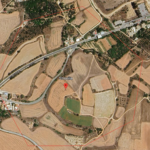As I prepare for the fieldwork phase of my dissertation, one of the most important aspects of my planning has been navigating the ethical dimensions of working with human participants. My project involves gathering oral histories and memory-based narratives from individuals connected to the site—a village deeply shaped by displacement, contested governance, and fading cultural presence. This makes ethical reflection not just a requirement, but a foundational part of my approach.
The ethical approval process has prompted me to think carefully about how to approach sensitive topics such as memory, identity, and loss with care and integrity. Obtaining ethical approval ensures that my methods align with university guidelines on informed consent, confidentiality, and data protection.
One key principle guiding my approach is that participants must feel fully informed and empowered. Consent will be obtained in writing, but also treated as an ongoing, dialogic process—participants will be able to withdraw at any point, and will have control over how their stories are recorded, shared, and archived. I am especially conscious that these narratives are not just data points; they are personal, often emotional accounts tied to a place that many can no longer access freely.
Engaging with these ethical considerations has reinforced the idea that research is not just about gathering knowledge—it is about building trust, care, and mutual respect. As I move toward conducting interviews, I am committed to maintaining a space where participants can share their memories openly and safely, knowing that their voices will be treated with the respect they deserve.
C.C.


